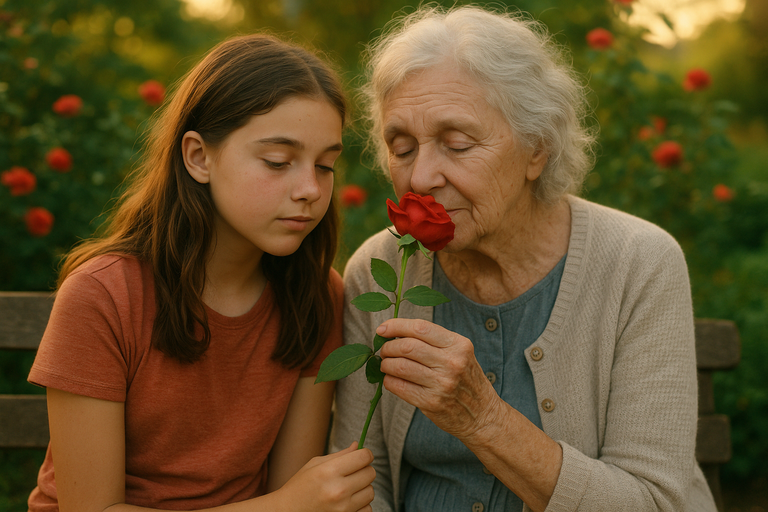
Elara’s decision to apprentice with a local landscape architect, Mr. Harrison, proved to be the deliberate pruning her life needed. The work was demanding but deeply satisfying. She learned not just about design, but about the ecology of a space—how water flowed, how light shifted, and how plants communicated with the soil. It was an extension of Nana Rose’s lessons, transforming her personal grief into professional purpose.
Her first major independent project involved restoring a neglected public park, turning a patch of hard-packed urban decay into a thriving, sustainable sanctuary. She approached it with the philosophy of the garden: observe, prune, and nurture. She chose native, resilient plants and designed winding paths that encouraged people to slow down and notice the quiet beauty around them.
During the back-breaking early phases, when the ground was stubborn and the progress slow, Elara often felt overwhelmed. One scorching afternoon, wrestling with a particularly tangled root ball, she heard a voice that wasn't there—the memory of Nana Rose’s gentle scolding: "The earth is patient, Elara. You must be patient, too. Never rush the roots."
She paused, taking a deep breath. She remembered the arduous process of rebuilding her own family’s garden, how long it had taken for the roses to return to their full glory. Rushing only led to mistakes and exhaustion. She put down the shovel, grabbed a bottle of water, and simply sat for ten minutes, observing the patterns of the light and the movement of the few hardy birds that had already returned. When she resumed, her movements were deliberate, imbued with a new calm.
The following spring, the park project blossomed. It was a spectacular success. The native flowers attracted monarch butterflies, and families started gathering on the new benches. The most meaningful part for Elara was seeing a group of elderly residents using a small, aromatic herb garden she had designed—a sensory garden intended to trigger memories.
One day, while observing their enjoyment, a woman stopped her. "This little garden," the woman said, her eyes shining, "it smells just like my grandmother's kitchen. You've brought back so many good things we thought were gone."
Elara felt a powerful surge of emotion. She wasn't just planting flowers; she was planting memories. She wasn't just designing landscapes; she was designing echoes. She realized that her true legacy, the one inherited from Nana Rose, wasn't the survival of a single rose bush, but the creation of spaces where the past could gently, beautifully intersect with the present.
The memory of her grandmother had transitioned from a source of pain to a wellspring of wisdom, guiding her shears, informing her plans, and inspiring her to create gardens that didn't just look good, but felt deeply, profoundly like home to everyone who entered them.
Would you like to explore how Elara balances her thriving career with her personal life, or perhaps the story of how she integrates a new generation into the garden's legacy?